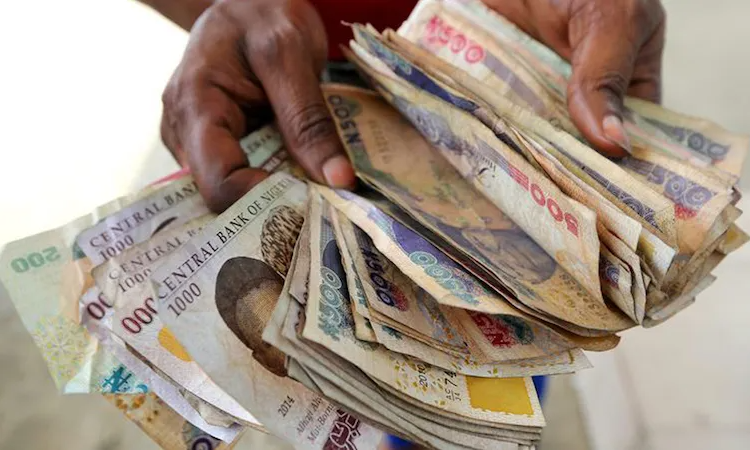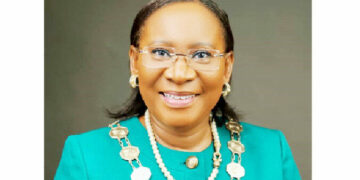In the face of mounting economic challenges, President Bola Tinubu has unveiled an ambitious Economic Stabilisation Programme aimed at revitalising the nation’s struggling economy. The comprehensive plan, announced during the inaugural meeting of the Presidential Economic Coordination Council (PECC) in Abuja, seeks to address key issues ranging from energy security to job creation, while grappling with the fallout from recent policy decisions that have sent shockwaves through the Nigerian economy.
President Tinubu’s programme is nothing if not ambitious. With targets including boosting electricity generation to 6 gigawatts within six months, increasing oil production to 2 million barrels per day within a year, and creating 4.7 million new jobs, the administration is setting high bars for success. These goals come at a critical time for Nigeria, as the country faces a perfect storm of economic challenges.
“We have the challenge of energy security in Nigeria,” Tinubu acknowledged during the PECC meeting. “We need to work together to improve our oil and gas sector, and we must also increase electricity generation and distribution throughout the country.”
The President’s frank assessment of the current situation – calling it “shameful” that Nigeria still generates only 4.5GW of electricity – signals a departure from past rhetoric and a commitment to confronting hard truths about the nation’s infrastructure deficits.
The Economic Stabilisation Programme is structured around several key pillars:
Energy Security: Beyond the headline targets for electricity generation and oil production, the plan aims to remove barriers to investment in the energy sector. This could potentially open the door for much-needed foreign direct investment and technological upgrades.
Agriculture and Food Security: With a goal of increasing staple crop production from 127 million metric tons to 135 million metric tons this year, the programme seeks to bolster both small-holder and large-scale commercial farming. The integration of satellite imagery for land use planning and crop monitoring suggests a push towards modernising agricultural practices.
Health and Social Welfare: Ambitious targets include making essential medicines more affordable for up to 90 million Nigerians, expanding healthcare insurance coverage, and powering 4,800 healthcare facilities with renewable energy. These measures could significantly improve access to healthcare, particularly in underserved areas.
Fiscal Measures: A cornerstone of the programme is a 650 billion naira facility to support MSMEs, manufacturers, and youth-owned enterprises. Additional initiatives like the Manufacturing Stabilisation Fund and the Rural Development Programme aim to rejuvenate industries and stimulate economic growth at the grassroots level.
Housing: The Mortgage Finance Acceleration Facility sets a target of constructing 25,000 new housing units, addressing both the housing deficit and potentially creating jobs in the construction sector.
While the Economic Stabilisation Programme lays out an ambitious roadmap for growth, it must be viewed in the context of recent economic policy decisions that have dramatically altered Nigeria’s economic landscape. The removal of fuel subsidy and the floating of the naira – two major policy shifts implemented by the Tinubu administration – have led to an astronomical rise in the prices of goods and services across the country.
The fuel subsidy removal, long advocated by economic experts as necessary for long-term fiscal health, has nonetheless caused immediate pain for many Nigerians. Fuel prices have more than doubled, leading to a ripple effect of increased transportation costs that have driven up prices for food and other essential goods.
Similarly, the decision to float the naira has led to a significant devaluation of the currency. While this move is intended to attract foreign investment and reduce arbitrage in the forex market, it has also made imports more expensive, further contributing to inflationary pressures.
These policy decisions, while potentially beneficial in the long term, have created a challenging economic environment in the short term.
The success of the Economic Stabilisation Programme will largely depend on how effectively it can mitigate these immediate hardships while laying the groundwork for sustainable growth.
A notable aspect of the PECC and the broader economic strategy is the heavy involvement of private sector leaders. The inclusion of prominent businessmen like Aliko Dangote and Tony Elumelu on the council signals a recognition that public-private partnerships will be crucial for achieving the programme’s ambitious goals.
Elumelu, speaking after the PECC meeting, expressed optimism about the oil production targets: “All of this is about creating prosperity for our people, it is all about creating economic hope and creating jobs for our young ones.”
Dangote, for his part, emphasized the importance of policy implementation and the private sector’s role in job creation: “The private sector will support the government to invest heavily and create jobs. Government does not create jobs, but they give us the right policies.”
This alignment between government ambitions and private sector capabilities could prove to be a powerful engine for economic growth – if the right policies and incentives can be put in place.
While the Economic Stabilization Programme presents a comprehensive vision for Nigeria’s economic future, it faces significant hurdles. The country’s history is littered with ambitious economic plans that failed to materialise, often due to a combination of poor implementation, corruption, and external economic shocks.
Critics may point out that many of the programme’s targets – such as doubling electricity generation in six months or creating millions of jobs in a year – seem overly optimistic given the current state of Nigeria’s infrastructure and business environment.
The success of these initiatives will depend not just on political will, but on the government’s ability to create an enabling environment for businesses to thrive and for foreign investment to flow in.
Moreover, the immediate economic pressures created by fuel subsidy removal and currency devaluation pose a significant challenge. If the government cannot quickly demonstrate tangible benefits from these policies or provide adequate support to those most affected, it risks losing public support for its broader economic agenda.
As Nigeria stands at this economic crossroads, the success or failure of Tinubu’s Economic Stabilisation Programme could define the country’s trajectory for years to come. The ambitious targets set out in the plan offer a vision of a more prosperous, economically diverse Nigeria – one with reliable power, a thriving manufacturing sector, and millions of new jobs.
However, turning this vision into reality will require more than just well-crafted policies. It will demand consistent implementation, transparency in government operations, and a willingness to make difficult decisions that may be unpopular in the short term but beneficial in the long run.
The inclusion of private sector leaders in the PECC is a positive step, potentially bringing valuable expertise and resources to bear on Nigeria’s economic challenges. But it will be crucial to ensure that this collaboration serves the interests of all Nigerians, not just a select few.
As the country grapples with the immediate fallout from recent economic policy shifts, the government must also find ways to provide relief and support to those most affected. Balancing the need for structural economic reforms with the imperative to protect vulnerable citizens will be a delicate but necessary task.
Ultimately, the success of Nigeria’s Economic Stabilization Programme will be judged not by the ambition of its targets, but by the tangible improvements it brings to the lives of ordinary Nigerians. In a nation long accustomed to unfulfilled economic promises, the Tinubu administration faces the formidable challenge of not just articulating a vision for prosperity, but delivering on it in the face of significant headwinds.
As Vice-President Kashim Shettima noted during the PECC meeting, “When there is a will, there is always a way.”
In the coming months and years, Nigeria’s leaders will need to demonstrate not just will, but wisdom, perseverance, and a commitment to inclusive growth if they are to navigate the country through its current economic turbulence and towards a more stable and prosperous future.





